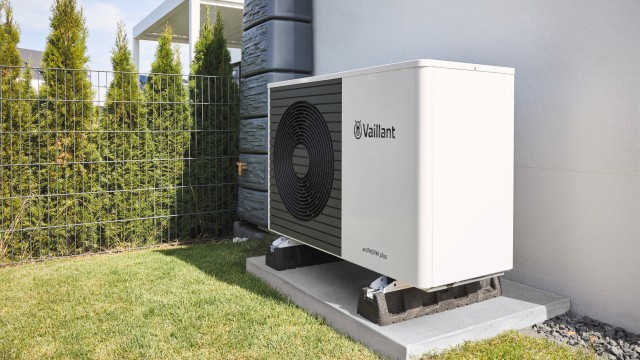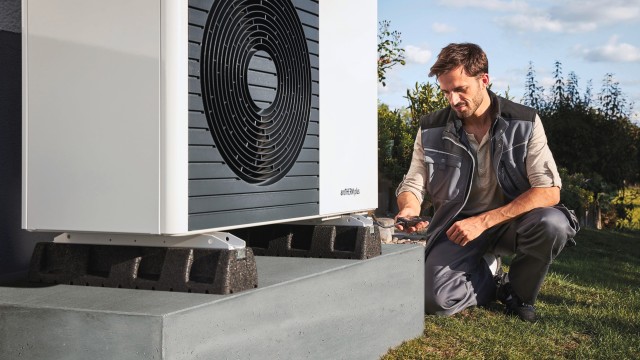SCoP is calculated at a value based on 6 test points at a minimum of 2 flow temperatures (the water that leaves your heat pump and circulates around your radiators or underfloor heating). This data is then used to work out the performance of the heat pump over 12 months. The heat pump will perform above or below the SCoP value depending on the time of year.
A good way to manage the SCoP is by fitting a weather compensating heating control, like Vaillant’s sensoCOMFORT which will automatically adjust the flow temperature to match the fluctuations in the outdoor temperature.
An installed heat pump will show a different SCoP every year depending on the usage pattern and weather conditions.
The temperature in the UK tends to fluctuate, for example if we have a mild winter, it will result in a significantly better SCoP than a freezing winter with temperatures below 0°C.
However, Vaillant heat pumps have been rigorously tested in a variety of climates, including cold temperatures even down to -25°C. This means that regardless of the external weather, your heat pump will still operate efficiency to provide heating and hot water.




